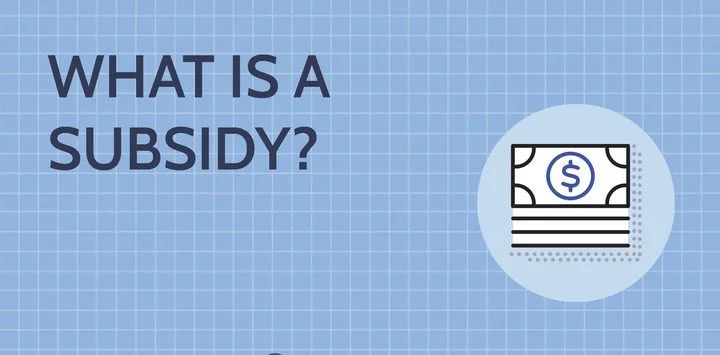Do Subsidies Strengthen the Economy?
Government subsidies serve as a catalyst in the economy, either by lowering production expenses for suppliers or encouraging consumer demand for goods and services. These financial aids can come in various forms, such as direct payments, tax reliefs, or reimbursements, among other mechanisms of economic support.
In essence, subsidies are deployed by governments to shield key sectors of the economy, especially those deemed fragile or exposed to external risks.
Key Insights
- Subsidies include tax exemptions, direct grants, or other financial support targeted toward industries or economic sectors.
- The primary aim of subsidies is to bolster vital sectors of the economy or reinforce national infrastructure.
- While subsidies may temporarily boost specific industries, critics argue they disrupt the natural dynamics of free trade and foster market distortions.
Impact of Subsidies on Supply
Governments use subsidies to stimulate output and consumption in specific sectors. When aimed at suppliers, these subsidies allow producers to generate more goods and services, leading to an increase in supply. This expansion reduces overall market prices and raises the quantity demanded.
Through this mechanism, both producers and consumers benefit. Producers enjoy improved profitability, similar to what they would achieve with higher prices, while consumers gain access to products at lower prices. Government support, often provided through tax incentives or reimbursements, becomes a tool to sustain this equilibrium.
Impact of Subsidies on Demand
On the demand side, subsidies can empower consumers to afford otherwise expensive goods or services, typically through tax incentives. A relevant example lies in the renewable energy sector, where the initial costs of adopting technologies like solar panels are often prohibitive. Government incentives, such as tax credits, help reduce these expenses, nudging more consumers toward green solutions.
Although consumer-focused subsidies don’t directly incentivize manufacturers to boost production immediately, they make high-cost products more accessible. This increased adoption ultimately encourages producers to scale up their output over time.
For instance, several states offer subsidies or tax credits to buyers of electric and hybrid vehicles, easing the financial burden and fostering growth in the clean energy industry. This enables a greater number of consumers to engage with eco-friendly technologies without shouldering the full cost.
Criticisms of Government Subsidies
Opponents of subsidies argue that they disrupt market equilibrium by favoring specific companies over others, eroding competition. This selective support can lead to rent-seeking behavior, where businesses prioritize securing subsidies over delivering value, potentially harming consumers in the process. Critics maintain that subsidies not only generate inefficiencies but also dampen incentives for companies to reduce operational costs.
Direct vs. Indirect Subsidies
- Direct subsidies: Cash payments or tax cuts that have an immediate impact on businesses or industries.
- Indirect subsidies: These do not involve direct financial transactions but might ease access to resources or reduce operational expenses through other means.
Which Industries Benefit from U.S. Subsidies?
The U.S. government provides substantial subsidies to several industries, notably:
- Agriculture: A cornerstone of government financial aid to protect food security.
- Oil and energy: Support for fossil fuels and renewable energy sources.
- Healthcare: Programs such as Medicare offer indirect subsidies to specific sectors.
- Automotive and housing sectors: Some automakers and housing initiatives also benefit from targeted assistance.
Final Thoughts
Subsidies play a pivotal role in shaping the economy by either boosting production or making costly products affordable to consumers. However, governments must balance these interventions by either increasing taxes or reallocating existing funds to cover the cost of subsidies.
While subsidies can stimulate industries and promote consumption, critics caution against over-reliance, as they risk distorting free markets and encouraging inefficiencies. Whether targeted at suppliers to expand production or used to reduce consumer costs through tax credits, it’s evident that subsidies have profound, real-world effects on the broader economy.























